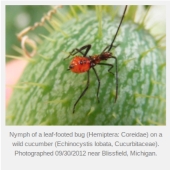
 10
10




 6
6




Seed the Mind, Harvest Ideas.
http://farmwhisperer.com
 2
2




Ken Peavey wrote:Mulch.
You can mulch once or weed every week.

 3
3




 4
4




It's never too late to start! I retired to homestead on the slopes of Mauna Loa, an active volcano. I relate snippets of my endeavor on my blog : www.kaufarmer.blogspot.com




Moderator, Treatment Free Beekeepers group on Facebook.
https://www.facebook.com/groups/treatmentfreebeekeepers/





 5
5




 3
3




Check out Redhawk's soil series: https://permies.com/wiki/redhawk-soil
 3
3








 4
4







Invasive plants are Earth's way of insisting we notice her medicines. Stephen Herrod Buhner
Everyone learns what works by learning what doesn't work. Stephen Herrod Buhner




A build too cool to miss:Mike's GreenhouseA great example:Joseph's Garden
All the soil info you'll ever need:
Redhawk's excellent soil-building series






 4
4




List of Bryant RedHawk's Epic Soil Series Threads We love visitors, that's why we live in a secluded cabin deep in the woods. "Buzzard's Roost (Asnikiye Heca) Farm." Promoting permaculture to save our planet.
 1
1




Bless your Family,
Mike






 6
6




It's never too late to start! I retired to homestead on the slopes of Mauna Loa, an active volcano. I relate snippets of my endeavor on my blog : www.kaufarmer.blogspot.com
 2
2





 2
2




Argue for your limitations and they are yours forever.





 19
19




 6
6




Life on a farm is a school of patience; you can't hurry the crops or make an ox in two days.
Henri Alain










Mike Barkley wrote:The best tip I didn't see posted already is to not let a single leaf leave your property.
It's never too late to start! I retired to homestead on the slopes of Mauna Loa, an active volcano. I relate snippets of my endeavor on my blog : www.kaufarmer.blogspot.com
 2
2




Sometimes the answer is nothing

 1
1
















 1
1




Don’t garden on the basis of ‘the squeaky wheel gets the oil’ – it’s easier to do ongoing maintenance so there aren’t any potential squeaks
List of Bryant RedHawk's Epic Soil Series Threads We love visitors, that's why we live in a secluded cabin deep in the woods. "Buzzard's Roost (Asnikiye Heca) Farm." Promoting permaculture to save our planet.
 1
1




A human being should be able to change a diaper, plan an invasion, butcher a hog, conn a ship, design a building, write a sonnet, balance accounts, build a wall, set a bone, comfort the dying, take orders, give orders, cooperate, act alone, solve equations, analyze a new problem, pitch manure, program a computer, cook a tasty meal, fight efficiently, die gallantly. Specialization is for insects.
-Robert A. Heinlein




 3
3








 2
2




Anne Miller wrote:
Here are some things you can do to get rid of weeds:

Zone 6b, dry, high desert in New Mexico 7500' elevation
have you checked your new USDA Hardiness zone? Check here: https://planthardiness.ars.usda.gov/
 2
2




 1
1




Ken Peavey wrote:Mulch.
You can mulch once or weed every week.
Your friend isn't always right and your enemy isn't always wrong.







 1
1




Hans Albert Quistorff, LMT projects on permies Hans Massage Qberry Farm magnet therapy gmail hquistorff







The original Silicon Valley hillbilly.





Once I learned that if I ground up the Mexican elderberry branches it would prevent them from rooting
 3
3





|
Can you hear that? That's my theme music. I don't know where it comes from. Check under this tiny ad:
2024 Permaculture Adventure Bundle
https://permies.com/w/bundle
|







